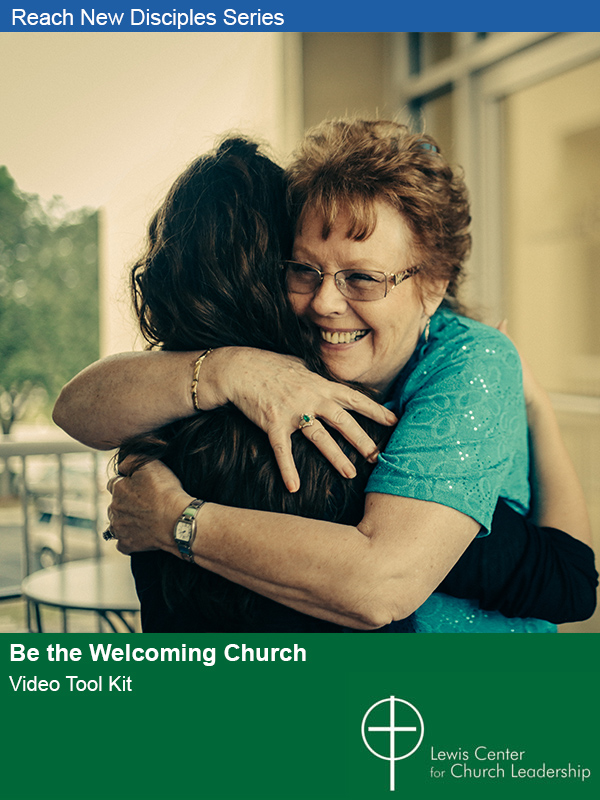Lovett H. Weems Jr. says a continued commitment to online worship is not a hindrance that detracts from in-person worship but rather a vital way to reach new people and accomplish the church’s mission. But as this new worship option continues to evolve, congregations must commit to mastering the medium by learning, seeking feedback, and continuing to improve.
I remember once hearing a pastor tell about his grandfather, the pastor of a large, prestigious congregation in a southern city when radio was in its early days. Radio stations were trying to attract listeners, so it was not uncommon for them to broadcast the Sunday services of high profile churches without cost. When offered this opportunity, my colleague’s grandfather immediately turned it down. He thought if people could stay home and listen to the service, no one would attend in person. But things didn’t work out that way. In fact, it was the churches that accepted the offer of free radio broadcasts that grew, as more people became acquainted through the radio broadcasts with the pastor and congregation.
Chances are that virtual worship services are here to stay much as radio and television worship services remain available. Churches today that use television or radio to share their services more broadly certainly do not see those services as taking away from their mission. If they did, they would not pay the high cost of providing worship through those media. Similarly, churches should see virtual worship as a way to to accomplish their mission rather than seeing it as a hindrance.
Online worship beyond the pandemic
Some churches were already offering worship online before the pandemic, but most were not. They embraced virtual worship when pandemic safeguards prevented them from gathering in person. Their early attempts at online worship were often awkward. Leaders were ill-equipped. There were technological challenges. And most clergy and musicians had little experience in communicating effectively in this new medium. But as time went by, the services improved for most churches. As the worst of the pandemic subsided, most churches were managing their virtual worship relatively well.
Some assumed virtual services would be unnecessary once in-person worship resumed. But most understood that basic changes were taking place in how people live their lives and post-pandemic worship may not return to “normal.” Online worship would be needed for those unable to attend in person for health reasons. But also, there would continue to be an audience for online worship alongside in-person, radio, and television. The decision of whether to continue an online service was no longer just a matter of providing access to members unable to attend because of the pandemic.
Mastering the medium
I once was pastor of a church whose services were broadcast live each Sunday on radio and television. I learned that a successful radio broadcast involved much more than merely having the signal go through. For example, we found that we had to examine the service relentlessly for “dead time,” silence that is guaranteed to cause radio listeners to change stations. And addressing those dead times actually made the in-person service far better as well.
As we prepared to televise the services, I recorded services of other churches to study their best practices. I also visited churches with televised worship and talked to the pastors and other leaders. Some of the best advice I received was to make sure the production quality of the service was equal to what people expected when they watch network television. The lighting, sound, and cameras must allow people to give their full attention to the worship, rather than being distracted by production problems.
Continuing to learn and improve
No matter how fine your online worship experience is, you and your colleagues do not have decades of experience with online worship as you probably do with in-person worship. We must acknowledge that we are still in the early stages of developing what the online worship experience can be. Everyone is still learning. You want to make sure that your online worship is evolving based on your experience, the experience of other churches, and especially the experience of your online worship participants.
1. Devote considerable time to planning and evaluation.
In this regard, we can learn from the best practices growing churches use in planning and evaluating all their worship services. Growing churches tend to spend considerable time planning for worship — both long term and weekly. They plan well ahead, and they do detailed planning for each service. They devote far more time each week than other churches do in preparing for the Sunday services. And they regularly evaluate and revise. This includes a review of each service and regular overall reviews.
2. Seek feedback and input.
Know that for the foreseeable future, as you navigate this still emerging worship medium, improving your virtual worship will require far more extensive review. Find ways to seek feedback, and review every week with one goal in mind: How can we improve what we are doing before next week? Seek feedback from those who worship online, but don’t stop there. View the services yourself, making notes for improvement. Ask others who attend in-person worship to view the online services and offer suggestions for improvement.
Watch online services from other churches who do online worship well and ask others to watch them. The task is always the same: We don’t need to know what we do better than they do. We must learn what they do better than we do. Chances are you will first notice small changes you can make. However, as time goes by, pay most attention to methods other churches use to include and engage their online worshipers beyond being spectators. This learning is both the biggest challenge and greatest opportunity of this endeavor.
3. Advocate for expanded internet access to those in need.
In many parts of the United States, especially rural areas, there is limited or no broadband access. There was a time when the same was true for access to electricity and telephones. If you are blessed by dependable internet connections in your area, consider advocating for expanded coverage to benefit those locales in need. Also be aware that in areas that do have internet access, there may be households that do not have the resources to afford the access and technology needed to share in your online worship. What are ways you can advocate for and help support them as well?
Related Resources
- Improving Worship Attendance in a Post-Pandemic World, a Lewis Center webinar recording
- 5 Signs You’re Doing Online Ministry Right by Carey Nieuwhof
- Moving Forward with Hybrid Worship by Olu Brown
If you would like to share this article in your newsletter or other publication, please review our reprint guidelines.







